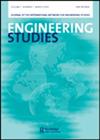Transfer of ‘Engineer’s Mind’: Kim Choong-Ki and the Semiconductor Industry in South Korea
IF 1.3
3区 工程技术
Q2 EDUCATION, SCIENTIFIC DISCIPLINES
引用次数: 2
Abstract
ABSTRACT By the mid-2000s, South Korea had become a dominant power in semiconductors, and by the mid-2010s, its worldwide market share of memory had climbed to over 60%. Many scholars have endeavored to discover the secret of the South Korean success but have usually emphasized the roles and contributions of the South Korean government and individual companies in the development of semiconductors, almost totally neglecting those of the South Korean academy. This article analyzes how the South Korean academy contributed to the development and success of the semiconductor industry by examining the life and work of Kim Choong-Ki of Korea Advanced Institute of Science and Technology (KAIST). Beginning in 1975, Kim trained the first two generations of semiconductor engineers at KAIST, most of whom became the field’s leading figures in academia, at research institutes, and especially in industry. This study is not a biography of Kim but a critical analysis of how a university professor, not an entrepreneur, became the ‘godfather’ of the semiconductor industry in South Korea. I argue that this was only possible within South Korea’s unique triangular relationship among government, industry, and academia during the last quarter of the twentieth century.“工程师思维”的转移:金仲基与韩国半导体产业
到2000年代中期,韩国已成为半导体领域的主导大国,到2010年代中期,韩国在全球存储器市场的份额已攀升至60%以上。虽然很多学者都在努力寻找韩国成功的秘诀,但他们往往强调韩国政府和个别企业在半导体发展中的作用和贡献,几乎完全忽视了韩国学术界的作用和贡献。本文通过研究韩国科学技术院(KAIST)的金仲基(音译)的生平和工作,分析了韩国科学院如何为半导体产业的发展和成功做出贡献。从1975年开始,金教授在KAIST培养了前两代半导体工程师,其中大多数人成为了学术界、研究机构,尤其是工业界的领军人物。这本书不是金氏的传记,而是对大学教授而不是企业家如何成为韩国半导体产业“教父”的批判性分析。我认为,这只有在20世纪最后25年韩国政府、产业和学术界之间独特的三角关系中才有可能实现。
本文章由计算机程序翻译,如有差异,请以英文原文为准。
求助全文
约1分钟内获得全文
求助全文
来源期刊

Engineering Studies
ENGINEERING, MULTIDISCIPLINARY-HISTORY & PHILOSOPHY OF SCIENCE
CiteScore
3.60
自引率
17.60%
发文量
12
审稿时长
>12 weeks
期刊介绍:
Engineering Studies is an interdisciplinary, international journal devoted to the scholarly study of engineers and engineering. Its mission is threefold:
1. to advance critical analysis in historical, social, cultural, political, philosophical, rhetorical, and organizational studies of engineers and engineering;
2. to help build and serve diverse communities of researchers interested in engineering studies;
3. to link scholarly work in engineering studies with broader discussions and debates about engineering education, research, practice, policy, and representation.
The editors of Engineering Studies are interested in papers that consider the following questions:
• How does this paper enhance critical understanding of engineers or engineering?
• What are the relationships among the technical and nontechnical dimensions of engineering practices, and how do these relationships change over time and from place to place?
 求助内容:
求助内容: 应助结果提醒方式:
应助结果提醒方式:


